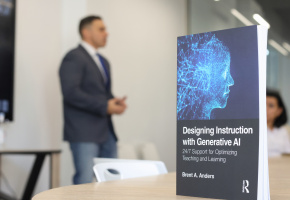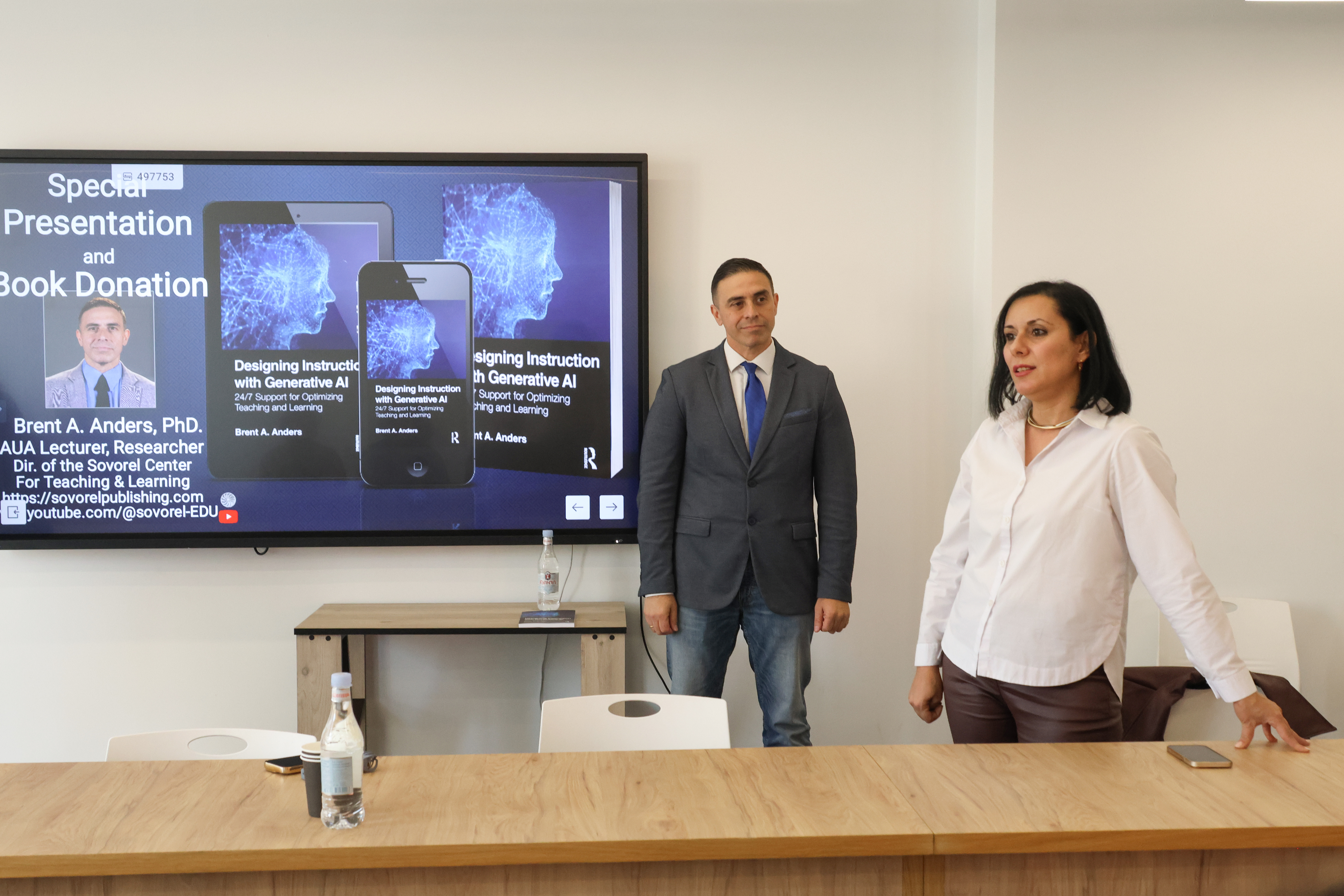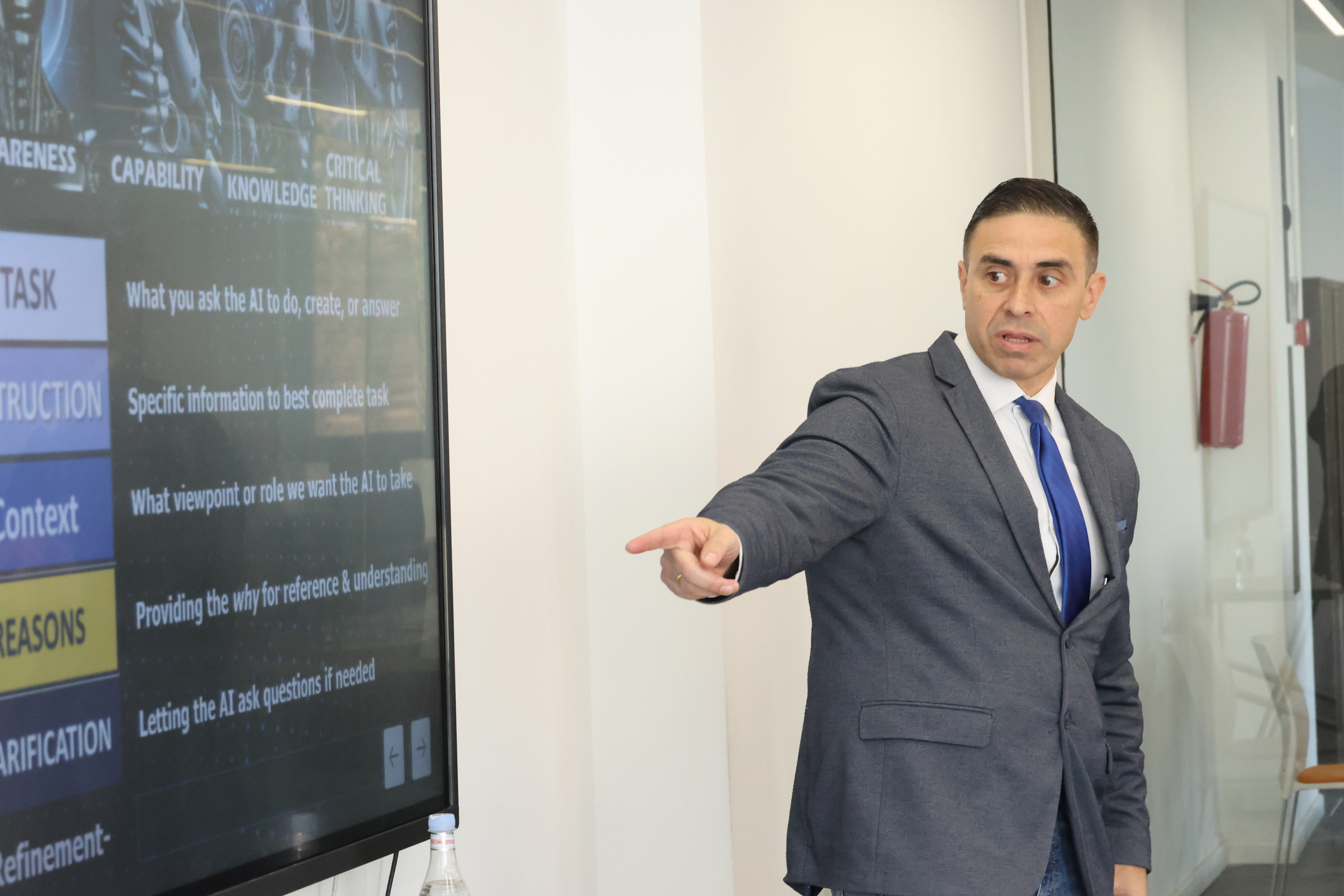November 06, 2025 | 16:03
Career
Education
Generative AI as a pathway to instructional design
The Sarkis and Marie Izmirlian Library at Yerevan State University hosted the presentation and discussion of the book "Designing Instruction with Generative AI". Drawing upon extensive research, professional experience, and strategic insights, the book serves as a valuable guide for both novice and experienced educators, as well as for students, showing how artificial intelligence can support course design and enhance the effectiveness of teaching.
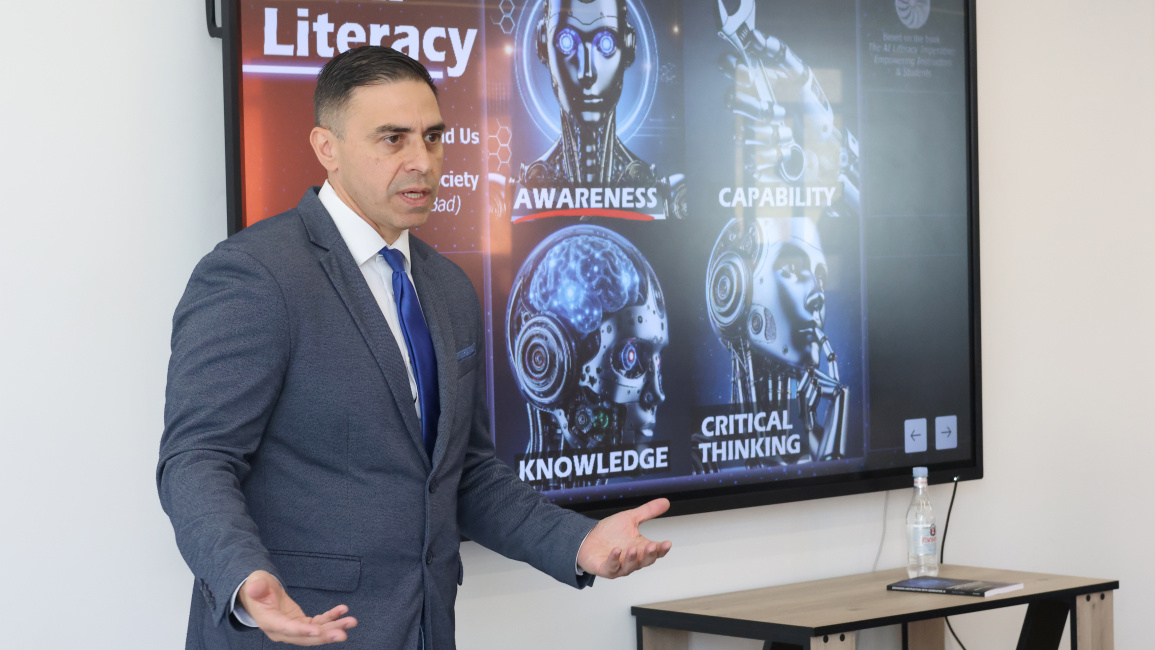
The Sarkis and Marie Izmirlian Library at Yerevan State University hosted the presentation and discussion of the book "Designing Instruction with Generative AI". Drawing upon extensive research, professional experience, and strategic insights, the book serves as a valuable guide for both novice and experienced educators, as well as for students, showing how artificial intelligence can support course design and enhance the effectiveness of teaching.
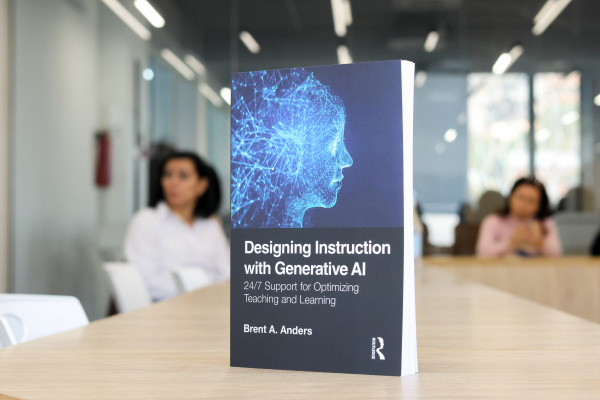
The book "Designing Instruction with Generative AI" presents an innovative combination of tools and strategies aimed at the effective use of artificial intelligence in education, as well as the creation of engaging and personalized learning experiences. Each chapter offers advanced and practically tested methods for developing and improving learning materials, course programs, and educational environments, thereby contributing to the advancement of digital literacy.
The book consists of 12 chapters, each addressing key aspects of instructional design. The first chapter introduces the concept of generative artificial intelligence, while the following chapters discuss AI literacy, instructional design introduction, course alignment, student learning outcomes, assessment, and instructional strategies. The book also explores topics such as motivation, instructional presence, accessibility, and behavioral issues.
The author underscores the potential of artificial intelligence as a means of fostering critical thinking and cognitive development.
The book presentation was accompanied by a lecture delivered by the author, Brent A. Anders.
Anders said, "Recently, UNESCO published an AI competency framework, highlighting four key components: awareness, capability, knowledge, and critical thinking. Awareness means recognizing that AI exists and we cannot ignore it. We must understand that AI is real and increasingly integrated into many fields. When it comes to capability, there are two important aspects: first, the capability of AI itself—how effective it is and whether all AI tools can perform the same functions—and second, our own capability to work with AI. It's essential to understand the limits of AI; it will never be perfect. Even if it approaches perfection, it may become outdated or give wrong viewpoints."

Discussing knowledge, capability, and critical thinking in greater depth, Anders added, "If I am in business, I must realize that all my competitors have access to the same AI tools that I do. Knowledge means understanding that everyone has access to AI. Key components of this knowledge include data security and privacy—it's crucial to know what information can and cannot be shared with AI systems. We must recognize that AI can be used for both positive and negative purposes: for creating deep fakes and scams, but also for advancing our capabilities."
Anders added that conversations with many teachers and students reveal that students are already actively using AI, yet an important question remains: are they doing so effectively and ethically? In this regard, he emphasized the importance of thoroughly understanding all aspects of AI to find the right approaches to emerging challenges.
He also discussed how AI-related skills can be applied and developed within teaching and instructional design, explaining that the latter involves breaking down work into smaller components—tasks and subtasks—to ensure effective learning structures.
Brent Anders emphasized that the main goal of his book is to help readers become better instructional designers and to show how generative AI can be used to facilitate and enhance that process.
The researcher also elaborated on the concept of course alignment, explaining that each course should clearly integrate three key components:
Student learning outcomes (SLOs)
Assessment strategies
Instructional strategies
At the conclusion of the discussion, participants had the opportunity to ask the author questions and share their viewpoints.
Brent Anders is also the author of several other works on artificial intelligence, including "The AI Literacy Imperative" and "9 Point Action Plan: for Generative AI Integration into Education". He teaches and conducts research at the American University of Armenia, where he also heads the Sovorel Center for Teaching & Learning.
